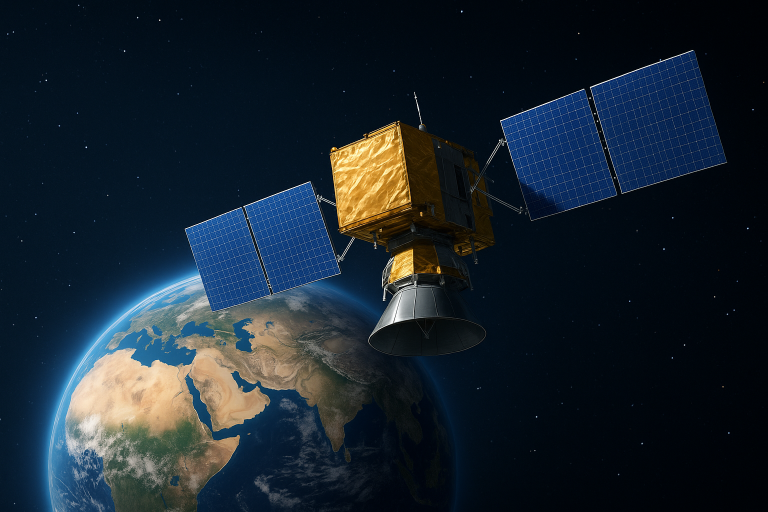The National Space Research and Development Agency (NASRDA) has signed a Memorandum of Understanding (MoU) with Galaxy Space, a Chinese technology firm, to deploy Direct-to-Device (D2D) satellite communication services in Nigeria.
Galaxy Space specializes in the development and mass production of low-cost Low Earth Orbit (LEO) satellites for commercial broadband internet.
Speaking at the MoU signing ceremony held on Wednesday in Abuja, NASRDA Director-General, Dr. Matthew Adepoju, described the partnership as a major milestone in Nigeria’s pursuit of advanced space and communication technologies.
“This collaboration will transform Nigeria’s telecommunications sector by allowing devices to connect directly to satellites—without the need for traditional ground infrastructure,” Adepoju said.
“Essentially, you won’t need a cellphone mast to make calls, exchange data, or stay connected. The satellite network will communicate directly with your handset, laptop, or workstation. We are working toward full deployment before the end of this year.”
Dr. Adepoju emphasized that the new technology would drastically reduce issues of poor network coverage, particularly in rural and underserved communities. He called on stakeholders in both the public and private sectors—including the banking industry, ministries, and government agencies—to support the adoption of satellite-based connectivity.
He also highlighted additional benefits of the partnership, such as capacity building and technology transfer, which would empower Nigerian engineers to localize and deploy the new technology independently.
“It is no longer sustainable to rely entirely on imported technology. We must begin producing the tools we need right here in Nigeria,” he added.
Representing Galaxy Space, Mr. Sam Xiao praised Nigeria’s leadership in space innovation within Africa, describing the country as a strategic gateway for expanding satellite-based technology across the continent.
Xiao proposed an additional collaboration to jointly build a CubeSat—miniature, box-shaped satellites used for Earth observation, experimental research, and communication. He noted that Nigerian engineers would play a lead role in the development, launch, and operation of the CubeSat.
“Through this partnership, Nigeria can leap ahead of other African nations in adopting next-generation satellite communication technologies,” Xiao stated.
D2D satellite technology allows smartphones and other standard devices to connect directly to satellites in orbit, eliminating the need for ground-based infrastructure such as cell towers. It holds vast potential for improving connectivity in hard-to-reach locations.


